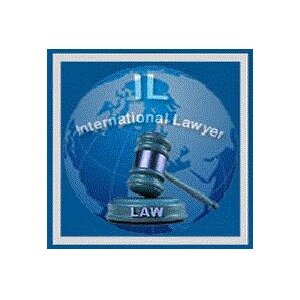Best Antitrust Lawyers in Islamabad
Share your needs with us, get contacted by law firms.
Free. Takes 2 min.
List of the best lawyers in Islamabad, Pakistan
About Antitrust Law in Islamabad, Pakistan
Antitrust laws in Islamabad, Pakistan, are enforced by the Competition Commission of Pakistan (CCP). These laws aim to maintain and encourage free-market competition by preventing restrictive trade practices, such as monopolies, cartels, and mergers that could potentially diminish competition. Islamabad, being the capital city, adheres to the same federal laws regarding competition oversight.
Why You May Need a Lawyer
Engaging the services of an Antitrust lawyer would be beneficial if you're involved in or are planning to form a large corporation, a merger, or require protection against unfair trade practices. Lawyers can offer advice on compliance with Antitrust laws, defend against allegations of anti-competitive behavior, or represent in matters of litigation before the CCP. A lawyer's input can also be crucial while crafting business contracts to avoid any unintentional legal issues pertaining to competition law.
Local Laws Overview
The key legislation relevant to competition law in Islamabad, Pakistan includes the Competition Act, 2010, enforced by the CCP. The act penalizes the abuse of a dominant position, such as imposing unfair purchase or selling prices, limiting production, markets or technical development to the prejudice of consumers, and applying dissimilar conditions to equivalent transactions. It also deals with deceptive marketing practices and prohibits mergers and acquisitions that substantially lessen competition in the relevant market.
Frequently Asked Questions
1. What is considered a violation of Antitrust laws in Islamabad?
Any business practices that diminish or harm competition in the market, such as predatory pricing, collusion, price fixing, and monopolistic behavior, can constitute a violation of Antitrust laws in Islamabad.
2. What penalties can be imposed for breaching the Antitrust laws?
Penalties can range from heavy fines to imprisonment, depending on the severity and impact of the violation. In some cases, both can be applicable.
3. Are there any exceptions provided in the Antitrust laws?
Yes, exemptions may be provided in certain cases like enhancement of economic efficiency, technological or socio-economic progress and consumers' interest provided they do not impose restrictions beyond what is necessary.
4. What is the role of the Competition Commission of Pakistan (CCP)?
The CCP is responsible for enforcing Antitrust laws, preventing market abuses, maintaining healthy competition, and promoting consumer interests.
5. Can foreign companies be charged under Pakistan's Antitrust laws?
Yes, foreign companies operating within Pakistan can be charged under Pakistan's Antitrust laws if their practices are found to be violating the Competition Act, 2010.
Additional Resources
The Competition Commission of Pakistan's (CCP) official website is a valuable resource for detailed information about Antitrust laws, recent decisions, and various related activities. Additionally, legal advocacy groups and law firms in Islamabad often publish informative articles and insights about Antitrust practices in Pakistan.
Next Steps
If you require legal assistance in the area of Antitrust, consider consulting with or hiring a legal professional specializing in Antitrust laws. Preparing relevant paperwork and familiarizing yourself with Antitrust laws and market practices could also be beneficial in ensuring that you understand the legal landscape and are able to relay comprehensive information to your lawyer.
Lawzana helps you find the best lawyers and law firms in Islamabad through a curated and pre-screened list of qualified legal professionals. Our platform offers rankings and detailed profiles of attorneys and law firms, allowing you to compare based on practice areas, including Antitrust, experience, and client feedback.
Each profile includes a description of the firm's areas of practice, client reviews, team members and partners, year of establishment, spoken languages, office locations, contact information, social media presence, and any published articles or resources. Most firms on our platform speak English and are experienced in both local and international legal matters.
Get a quote from top-rated law firms in Islamabad, Pakistan — quickly, securely, and without unnecessary hassle.
Disclaimer:
The information provided on this page is for general informational purposes only and does not constitute legal advice. While we strive to ensure the accuracy and relevance of the content, legal information may change over time, and interpretations of the law can vary. You should always consult with a qualified legal professional for advice specific to your situation.
We disclaim all liability for actions taken or not taken based on the content of this page. If you believe any information is incorrect or outdated, please contact us, and we will review and update it where appropriate.










